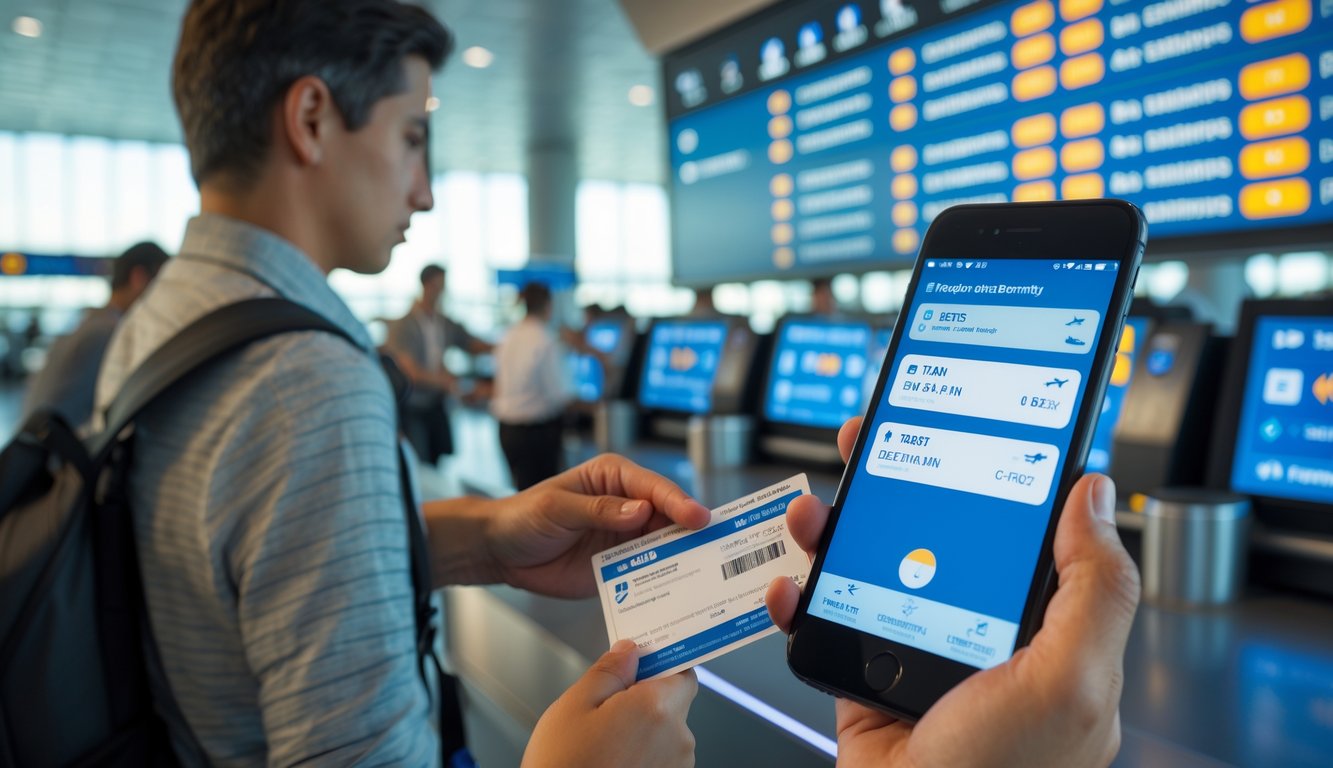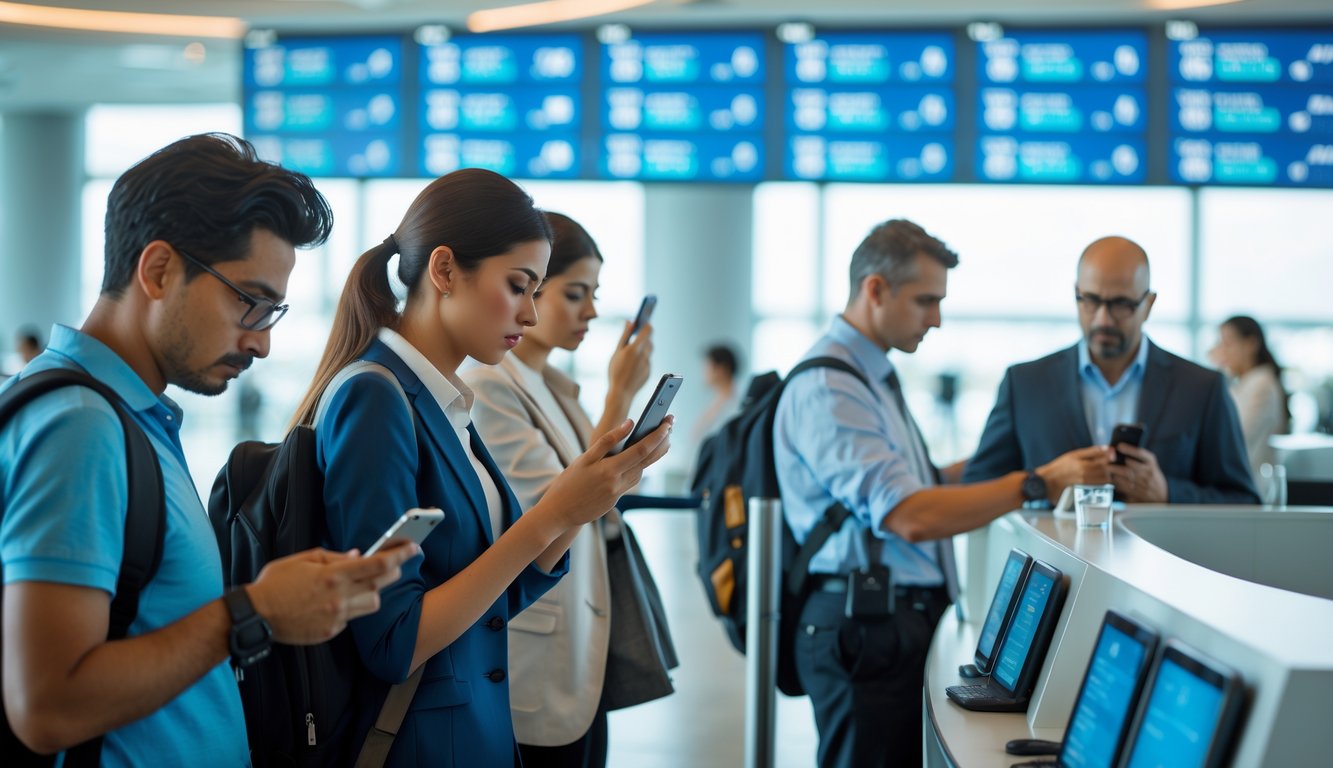
I swear, I can’t even try to book a flight without getting some cryptic “policy update” email that’s just a bunch of legalese buried somewhere between the seat selection and the spam folder. Suddenly, airlines jack up flight change penalties and… did anyone get an alert? Nope. Last week, I was moving a London trip, and—surprise—British Airways yanked its fee-free change policy overnight. No warning, just a new, much uglier price at checkout. “Book with confidence,” they used to say. Sure. That slogan vanished right when everyone started booking for summer. If you’re not obsessively checking airline policy pages like this one, you’ll get smacked with new fees before you even finish your coffee.
Someone online said airlines can just move your flight, change dates or times, and you can’t really do much about it—sounds ridiculous, but yeah, it’s in the fine print. I checked. Civil Aviation Authority says you can complain if they mess with your travel too close to departure, but for most of us, these new penalties just feel like another way to squeeze you. What really gets me: sometimes it costs more to change your flight than to just cancel the whole thing. Why isn’t this headline news? Instead, we’re all just grumbling in lost Reddit threads while hold music plays on loop.
Understanding Flight Change Penalties
Every year, people like me forget (or ignore) the fine print on tickets, and then—boom—penalties. It’s not just about the money. It’s about policies that shift every few months, “operational costs” nobody explains, and fee structures that morph overnight for U.S. airlines and, honestly, everywhere else. The way these charges sneak up is just… I don’t know, sneaky? Confusing at best.
How Flight Change Fees Work
You think you’re done after you buy the ticket. Then your boss moves a meeting, and suddenly you’re reading policy PDFs that might as well be in Latin. During the pandemic, most major U.S. airlines dropped change fees—felt like a miracle for about five minutes. Now? I keep catching new “adjustments” buried in the terms. Loyalty programs let frequent flyers save about $200 on ticket changes in 2024 (source), but if you’re not in the club, good luck.
Change fees are a mess: flat rates, fare difference charges, sometimes both. You think you’re paying $0, but the new flight is somehow always more expensive. Basic economy? Don’t even bother asking; you’re locked in. I once paid more in fees than the ticket itself. That’s not even funny.
Common Terms and Conditions
“Non-refundable,” “non-transferable,” “credit valid for 12 months”—all those landmines are hidden in the terms. I usually miss the expiration dates, so my credits just… disappear. The wild part? Change penalties aren’t even listed on your ticket. You have to dig through the airline’s website, which is a special kind of torture. Booking through third parties? Triple the headache, zero flexibility.
Sure, you can usually change within 24 hours for free (most U.S. airlines, anyway—see here), but after that, it’s chaos. One airline lets you pay the fare difference, another cancels your ticket if you so much as look at a new date. Why? No clue.
Flexible fares are supposed to help, but they cost more upfront, and the rules keep shifting. Reading these policies is like punishment. Sometimes I think airlines design them to be unreadable on purpose.
What Constitutes a Penalty Increase
Ever wake up, check your booking, and realize your airline doubled its change fee overnight? No announcement, no email, not even a pop-up. Classic. Airlines sneak these increases through so nobody notices. Sometimes the base fee stays the same, but suddenly there’s a new “operational surcharge” you’ve never seen before.
Someone told me fuel and labor costs drive these increases, but airlines never actually break down the numbers. I’ve watched fees go from a flat rate in 2022 to some weird sliding scale by 2025 (see this chart). Airlines claim it’s about “dynamic pricing,” but I’m pretty sure it’s just about making more money.
The worst part? You only find out the penalty went up when you’re at checkout. Nobody warns you. Suddenly, what was annoying is now a total minefield.
Recent Trends in Airline Penalties

So I’m flipping between booking tabs, my laptop fans screaming, trying to figure out if $80 is “normal” for a basic economy change fee. Do airlines just change this stuff at midnight? Feels like it. Legacy carriers pretend to simplify things, but honestly, the only thing you can count on is confusion. I never trusted those price calendars. Now I know why. Fees jump for no reason. Even the big U.S. airlines keep sneaking in new surcharges, sometimes stacking them in ways you won’t notice until you’re about to pay.
Historical Versus Current Change Fee Practices
People act like change fees started with COVID. Not true. I remember United charging $200 for any international change way back in 2017. Low-cost carriers like Spirit and Frontier? Their fees change so often, even Flyertalk can’t keep up.
There was this big moment in 2020 when Delta, American, and United “eliminated” most domestic change fees—press releases everywhere, CEOs patting themselves on the back. But if you’re flying basic economy, don’t even think about changes. Fees are either sky-high or you’re blocked out entirely—sometimes the only way out is to pay for an upgrade. The “flexibility” from the pandemic? Gone almost instantly once flights filled up again. Fine print came roaring back, especially for international and premium routes.
It got so bad for international travelers that refund complaints spiked over 500% in 2020, according to DOT stats. Airlines disguised penalties as “change differentials,” so people got stuck with credits instead of cash. NBC News wrote about new rules to fix it, but airlines keep finding loopholes.
Hidden Fee Increases and Consumer Awareness
Change fee up by $20? Blink and you’ll miss it. Suddenly there’s a “processing” fee or a “flexibility” surcharge. My inbox is full of low-cost carriers bragging about “no hidden fees”—which is hilarious, because their booking sites are basically obstacle courses. JetBlue sneaks in “trip protection,” Southwest adds “early-bird modifications,” and then acts shocked when Twitter explodes.
Here’s the usual: buy basic economy because it’s “risk free” for 24 hours, then find out after that, rebooking costs more than your original flight. It’s chaos by design. Last month a friend texted me at midnight, furious that Delta changed its policy wording so fast he missed the update—buried in a PDF attachment nobody reads.
And it’s not just me. LATimes covered new DOT rules forcing airlines to refund major changes, because “fee creep” got out of control. But travelers still get stuck with vouchers, especially if the airline blames “schedule upgrades” or some mysterious operational cost. Pro tip: always check Flyertalk and the DOT’s refund FAQ before you pay, because policies change monthly and customer service rarely knows what’s actually in the fine print.



